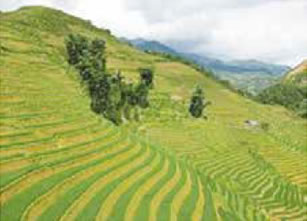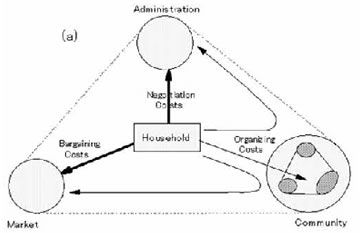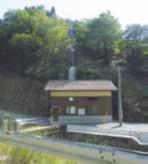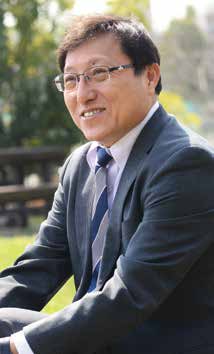Research Area : International Rural Studies
Natural resource management in Asian countries
The commons are the cultural and natural resources accessible to all members of a community, which are not often managed by the “invisible hand” under a market system. It is the local community that uses the commons sustainably, and endogenous self-organization plays a crucial role in forming norms for sustainable resource exploitation. In this context, my research interests focus on rural communities in exploiting natural resources, with study areas including Japan, Korea, China, and Vietnam.

Roles of endogenous self-organization in rural communities

Development is a process that involves not only money and agencies but also people. The framework for organizations in a rural community can provide a clue to identifying who should be the real actors for sustainable rural development in either developed or less developed countries.
Research Area : International Rural Studies
Conditions of participatory management of regional resources
Farmland and irrigation and drainage facilities serve as agricultural infrastructure for paddy fields and also contribute to society in other ways, for example, in reducing damage caused by heavy rains or in developing visually favorable landscapes. In recent decades, depopulation and aging of farmers have made it difficult for rural communities to properly maintain this infrastructure. Therefore, there is growing awareness that addressing this problem requires new participation in the maintenance by non-farmers. This research clarifies how rural communities actually maintain them and the factors affecting resident participation in maintenance.

Sustainable management of community-based renewable energy

The expanding use of renewable energy can help prevent global
warming and reduce air pollution. Especially, community-based
renewable power derived from local initiatives (community energy) is expected to provide an alternative energy resource and serve as a catalyst for rural development. Between the 1950s and 1960s, local communities became active in the construction of small hydropower plants, many in the Chugoku region. This study considers community energy projects in the Chugoku region in Japan to illuminate what conditions have enabled the studied organizations to succeed in securing resources needed for the operation of their renewable energy plants.




